Singapore hawker marathon: Hokkien prawn mee (prawn bisque stir-fried noodle)
IT IS “UGLICIOUS”
WHAT: This will be the last span in Singapore hawker marathon. Another aesthetically underachieving, possibly unappetizing-looking dish called Hokkien prawn mee (basically noodles stir-fried with prawn bisque) that became one of the few Michelin-blessed hawker dishes in Singapore.
WHY: At first glance, let’s be honest, it looks like shit. Clearly, this is a dish that gives little to zero fuck about what anybody thinks about it. But how on earth does a spatter of yellow and unenthusiastic gloop land effortlessly on the Michelin Guide, kind of made me curious. And if you also care to find out, you’d be blown away just as well by the powerful and intent talent and flavors that traffic underneath all that unbothered facade. As the highest compliment for both ends of the comparison, it’s the Ed Sheeran of noodles.
HOW: Forget about making it pretty. It’s not about being pretty. It shouldn’t be pretty. What this dish should be about, at all cost, is the nuclear fusion between two of the most powerful elements in gastronomy: lard, and prawn fats. Every bite of this lightly saucy strands of noodles is a perfectly engineered explosion of porkyness from rendered lard with crispy cracklings, and a concentrated prawn bisque extracted from blended prawn heads which is then fully fused into the noodles. The brief “stewing” between liquid and starch inevitably gives the noodles a gloppy look, but it’s the best-tasting glop you’ll ever cross path with, a deep and glorious saturation of flavors per every millimeter tubes. It will be thick. It will be rich. It will be intensely shrimpy, and porky, and garlicky, and almost irresponsible with that extra clash of hotheaded chili sauce. With a little squeeze of citrus, it’s unstoppable and uglicious.
Ingredients
- 2/3 cup (130 gams) canola oil
- 4 (65 grams) large red chili, such as goat horn or cayenne (see note *), stems removed
- 10 (20 grams) red bird's eye chili (see note *), stems removed
- 10 cloves of garlic, peeled
- 2 small shallots, peeled
- zest of 1/2 lemon
- 2 tbsp (20 grams) dried shrimps
- 2 tsp (14 grams) balacan shrimp paste or Thai shrimp paste
- 1 tbsp (15 grams) lemon juice
- 1 tsp light brown sugar
- 1.3 lb (600 grams) head-on shell-on, medium-size prawns
- 0.5 lb (220 grams) pork shoulder
- 0.2 lb/3oz (85 grams) solid pork fat (see note **)
- 0.2 lb/3oz (85 grams) Italian guanciale or pancetta
- 2 tbsp canola oil
- 1 tbsp (20 grams) balacan shrimp paste or Thai shrimp paste
- 2 tbsp all-purpose flour
- 4 cloves of garlic, finely minced
- 4 cups (940 grams/ml) pork or chicken stock
- 1/2 stalk lemongrass, roughly chopped
- 2 tbsp coconut milk
- 2 servings (about 2 large handfuls) of Chinese yellow noodles or fresh ramen noodles (see note ***)
- 2 servings (about 2 large handfuls/140 grams) dried, thin rice vermicelli
- 6 cloves of garlics, finely minced
- 3 large eggs
- fish sauce to season
- ground white pepper to season
Instructions
- MAKE DRIED SHRIMP CHILI SAUCE: In a blender, add canola oil, large red chili, bird's eye chili, garlics, shallots, lemon zest and balacan/shrimp paste, and blend until smoothly pureed. Transfer the mixture into a non-stick pot and bring to a gentle boil over medium heat. Continue to cook, stirring frequently, until the mixture has broken down into an oily sauce and has turned dark red in color, about 15~20 minutes. Add lemon juice and light brown sugar, and continue to cook for 5 more minutes. The sauce can be stored in an air-tight jar in the fridge, up to 1 month until needed.
- PREPARE THE PRAWNS: Remove the heads and shells from the prawns and reserve. Using a small knife, make a deep slit on the back of the prawn without cutting it in half, then remove any veins. Place the de-veined prawns in a large bowl, and season with 1 tsp of fish sauce and 1/4 tsp of ground white pepper. Plastic-wrap and keep in the fridge until needed.
- PREPARE PORK SHOULDER: Cut the pork shoulder into small pieces, then roughly chop them until coarsely "ground" with unevenly sized bits and chunks throughout. Dissolve 1 tsp balacan/shrimp paste in 2 tsp of water with 1/4 tsp sugar and 1/4 tsp ground white pepper (these are not included in the ingredient list), then evenly mix it into the pork. Plastic-wrap and keep in the fridge until needed.
- PREPARE LARD/CRACKLING: Finely dice the solid pork fat into tiny pieces, then cook them inside a small pot over medium-low heat, partially covered to avoid splatters, stirring occasionally. Meanwhile, finely dice the guanciale (or pancetta) as well. Once the pork fats have given out most of their liquid fat, and have become shriveled up, add the diced guanciale. Continue to cook until all of the solids have become golden browned, crispy bits. You would know it's ready when the sizzling subsides. Drain the fat through a fine sieve and reserve both liquid fat and crispy cracklings. You should have at least 5 tbsp of liquid fat.
- PREPARE PRAWN BISQUE: In a stock pot, cook reserved prawn heads and shells with 2 tbsp canola oil and 1 tbsp balacan/shrimp paste over high heat. Once there is no more liquid on the bottom of the pot, and the shells are slightly browned on the edges, add the flour and garlic, and cook for 1 more minute. Add the stock, lemongrass and coconut milk, and scrape the bottom of the pots to release any brownings. You can use an immersion blender or regular blender, blend the mixture until all the shells are finely ground. Then continue to cook with a lid on for 30 minutes. Drain the bisque through a fine sieve, pressing on the solids to extract as much liquid as you can, then discard the solids.
- PREPARE NOODLES: Yellow noodles come ready to use. If using fresh ramen noodles, pre-cook them until done, then drain well and toss lightly with a bit of canola oil to prevent sticking. Set aside. Soak the rice vermicelli in cold water until softened and swelled, and set aside. All of the above can be done several hours ahead of time, and set aside until needed.
- TO BRING EVERYTHING TOGETHER: In a small skillet, cook 2 tbsp of liquid lard and 6 cloves of minced garlics over medium-high heat until fragrant, then set aside. Heat a large wok over high heat until it starts to smoke. Add 1 tbsp of the liquid lard, then add the shrimps and cook until they're just cooked through. Remove from the wok and set aside. Add the pork shoulder, breaking it up with a wooden spoon, and cook until evenly browned. Remove from the wok and set aside.
- Add 2 more tbsp of lard into the wok, then add the eggs along with 2 tbsp of the reserved pork cracklings. Stir and cook the eggs until lightly scrambled, then add the yellow noodles (or pre-cooked ramen noodles) and rice vermicelli (drain well first). Do not over-stir at this point. Let the noodles brown against the hot wok, and flip them occasionally, about 5 minutes. If your stove is not powerful enough, you can try introducing more char by blow-torching the noodles for a bit.
- Now add the cooked prawns, pork shoulder and prawn bisque. Continue to cook, stirring gently, until most of the liquid is absorbed but the noodles are still moist and slightly saucy. Mix in the garlic lard that you prepared in the beginning of Step 7 (it's very important to add the garlic lard in the last step in order to get the flavor profile on point), and re-season with fish sauce (I added about 2 tsp) and ground white pepper. Serve immediately with a wedge of lemon, extra pork cracklings and dried shrimp chili sauce.
Notes
* Large red chilis such as goat horn or red cayenne are generally not very spicy, whereas small bird's eye chili is. By adjusting the ratio between the two, you can control the heat level of the chili sauce as desired.
** You can ask for pork fat trimmings from your butcher, or simply just trim it off of a slab of pork belly.
*** This recipe is traditionally done with "yellow noodle" which is a pre-cooked noodle that is slightly oily and quite common in southeast Asia. But I have also tried using fresh ramen noodles that are pre-cooked. They both contain lye/alkaline which gives them that yellow coloring, and both works for this recipe.


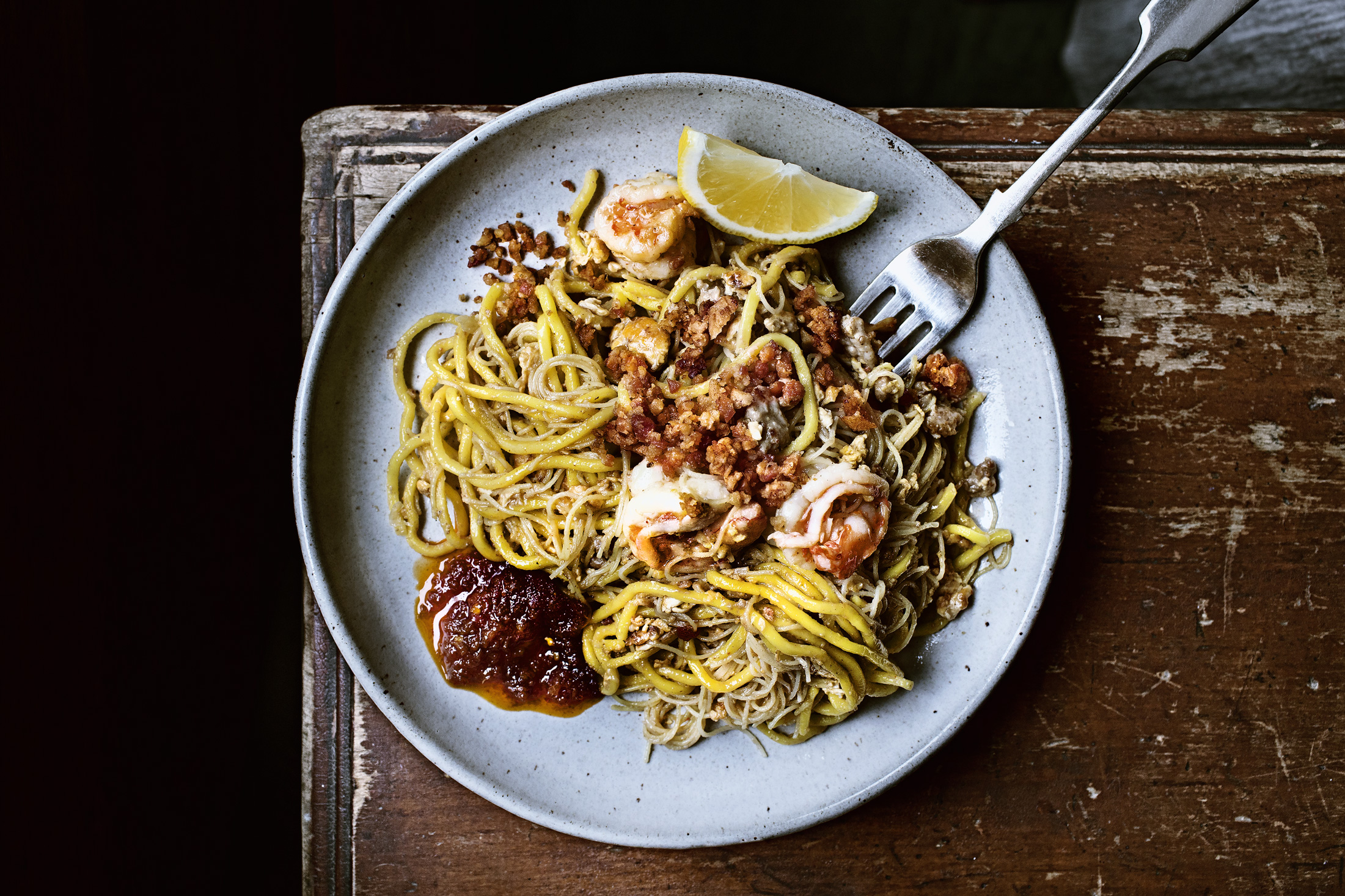
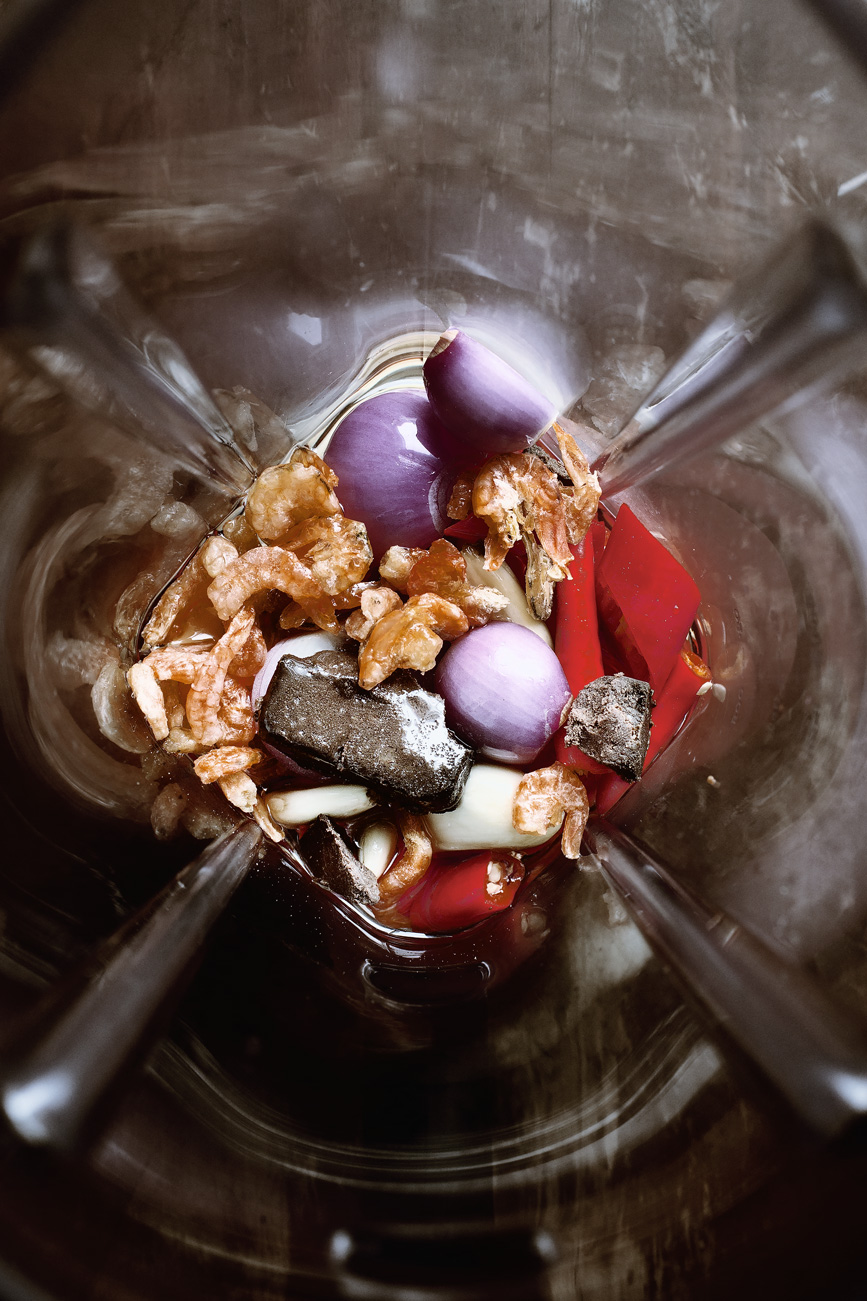
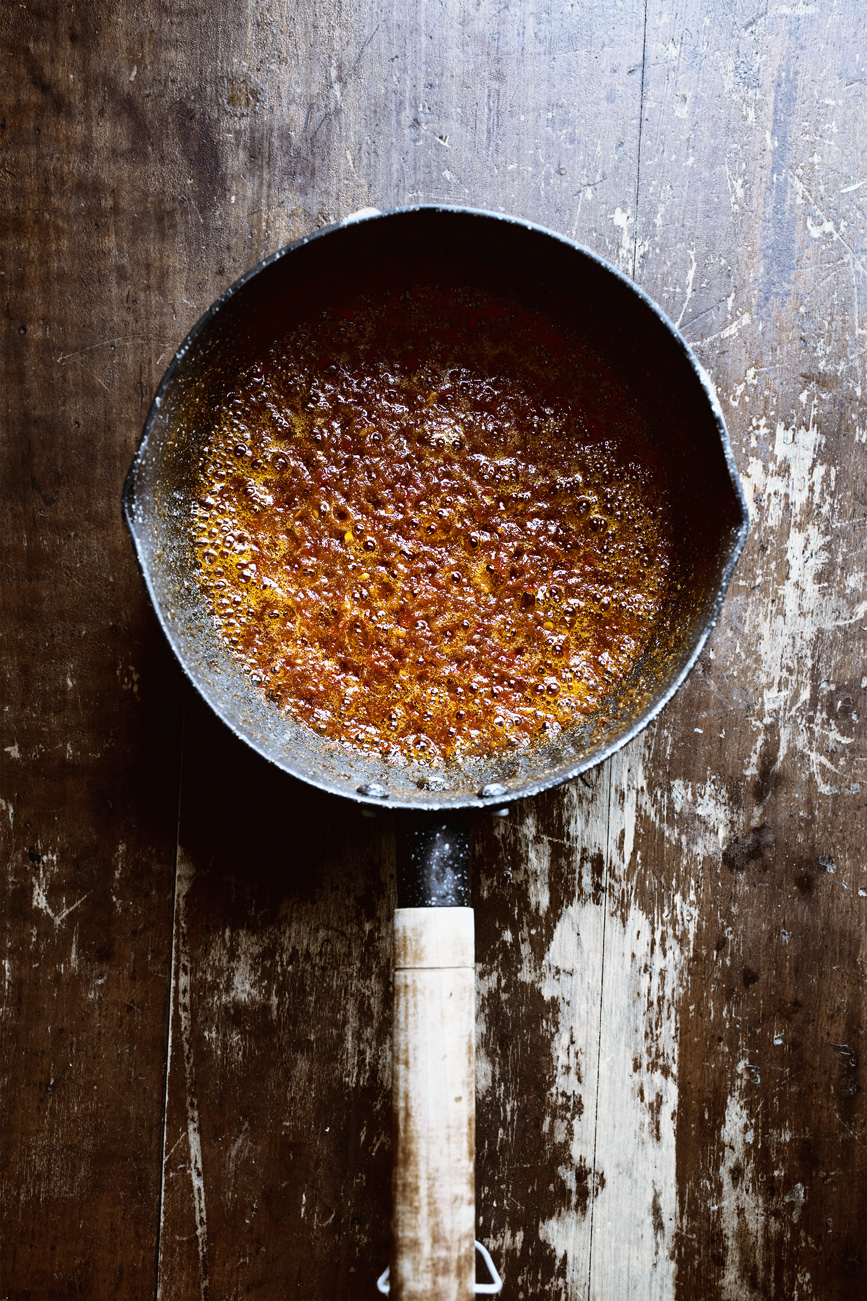
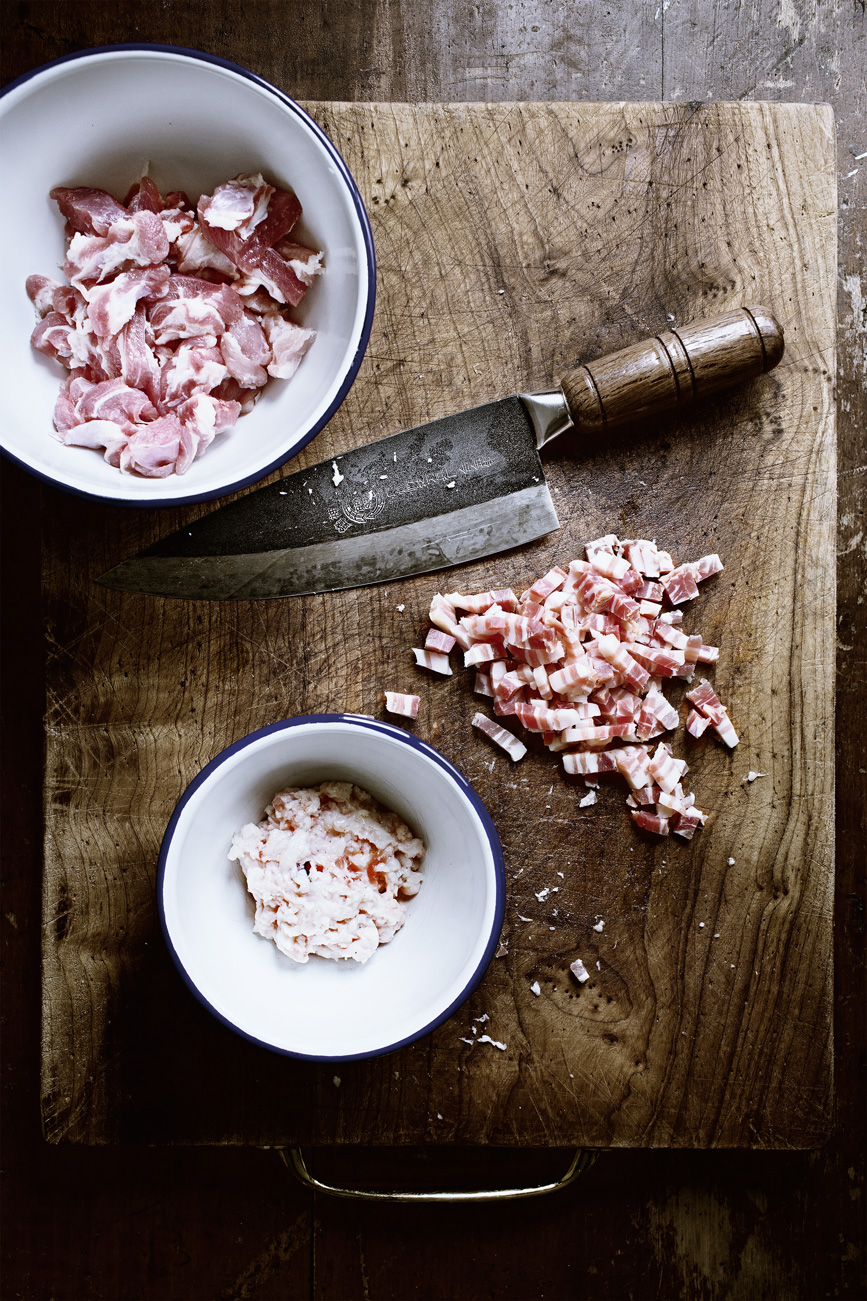
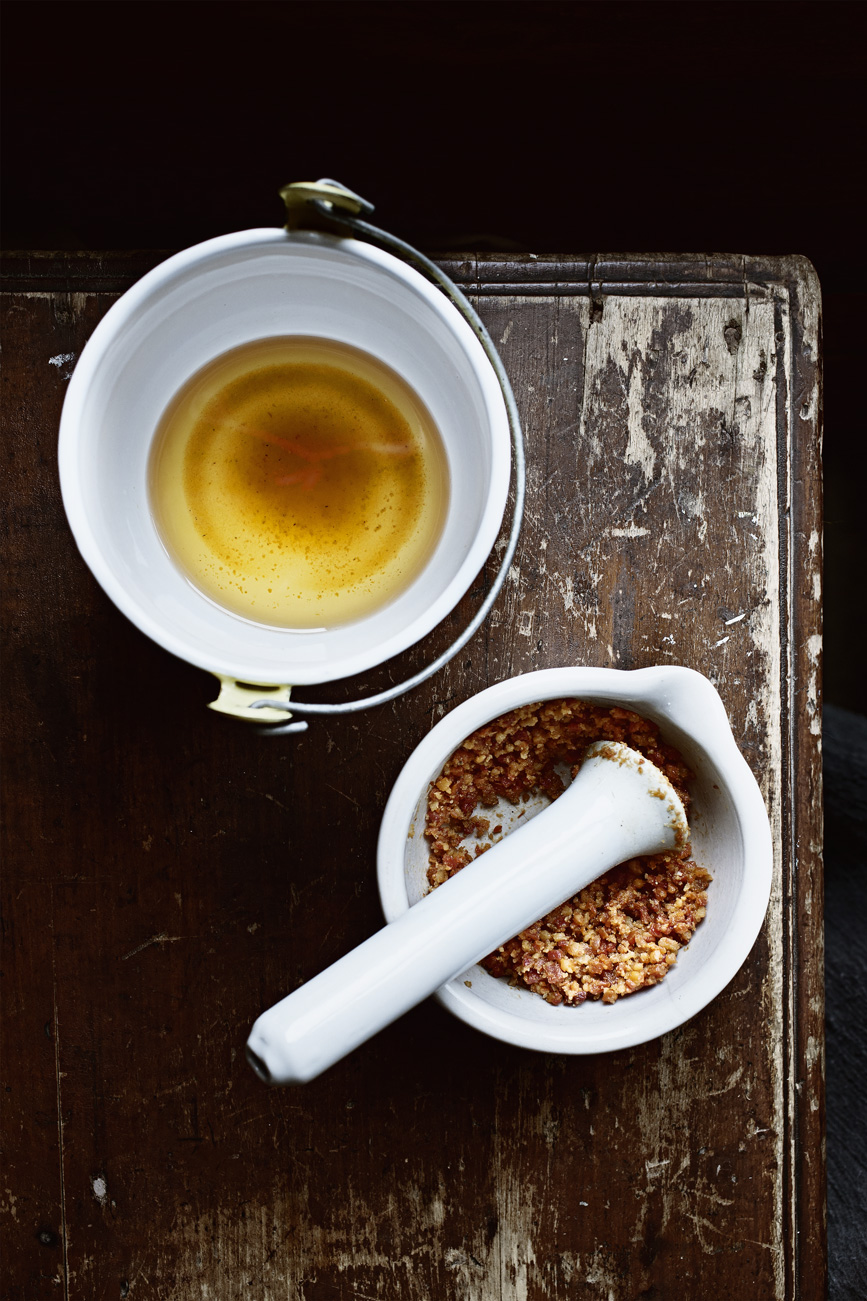
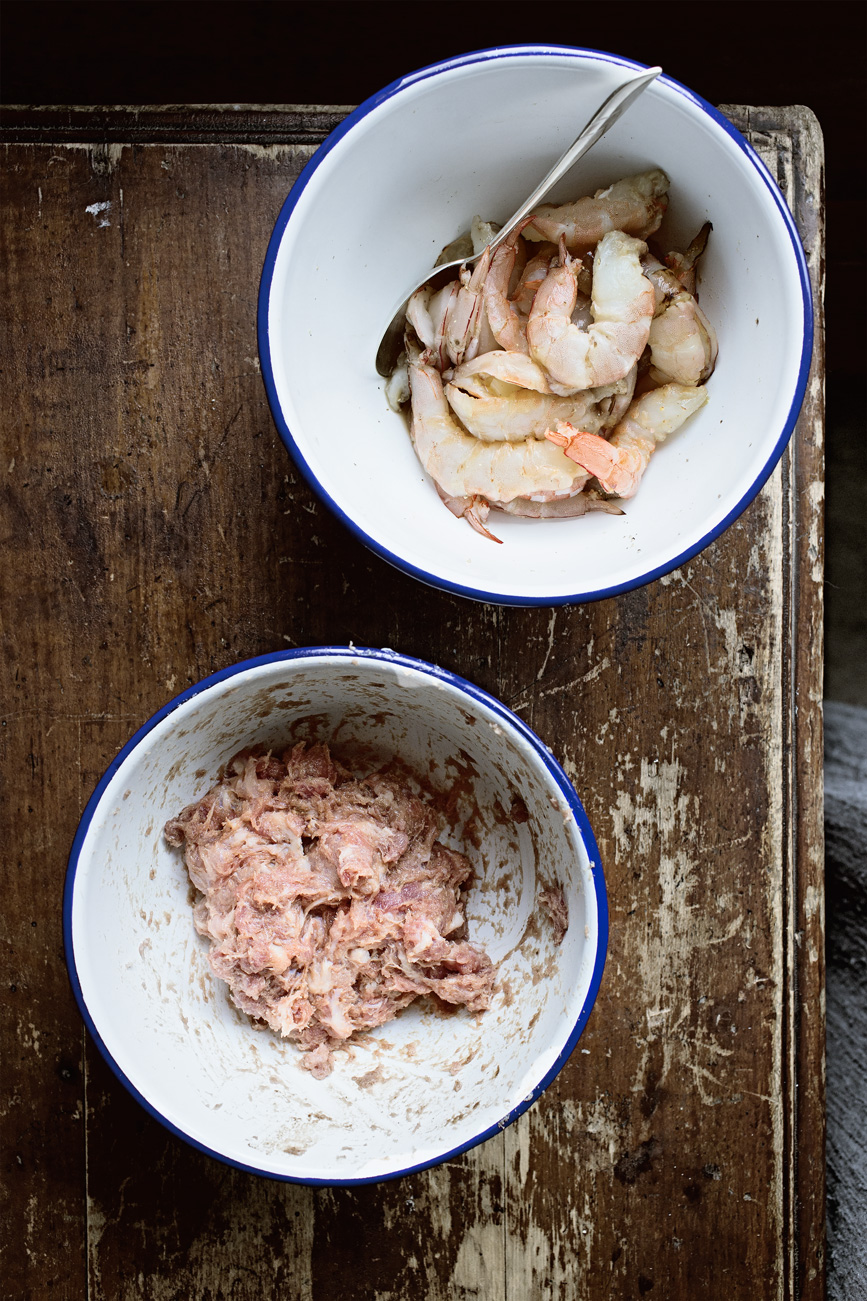
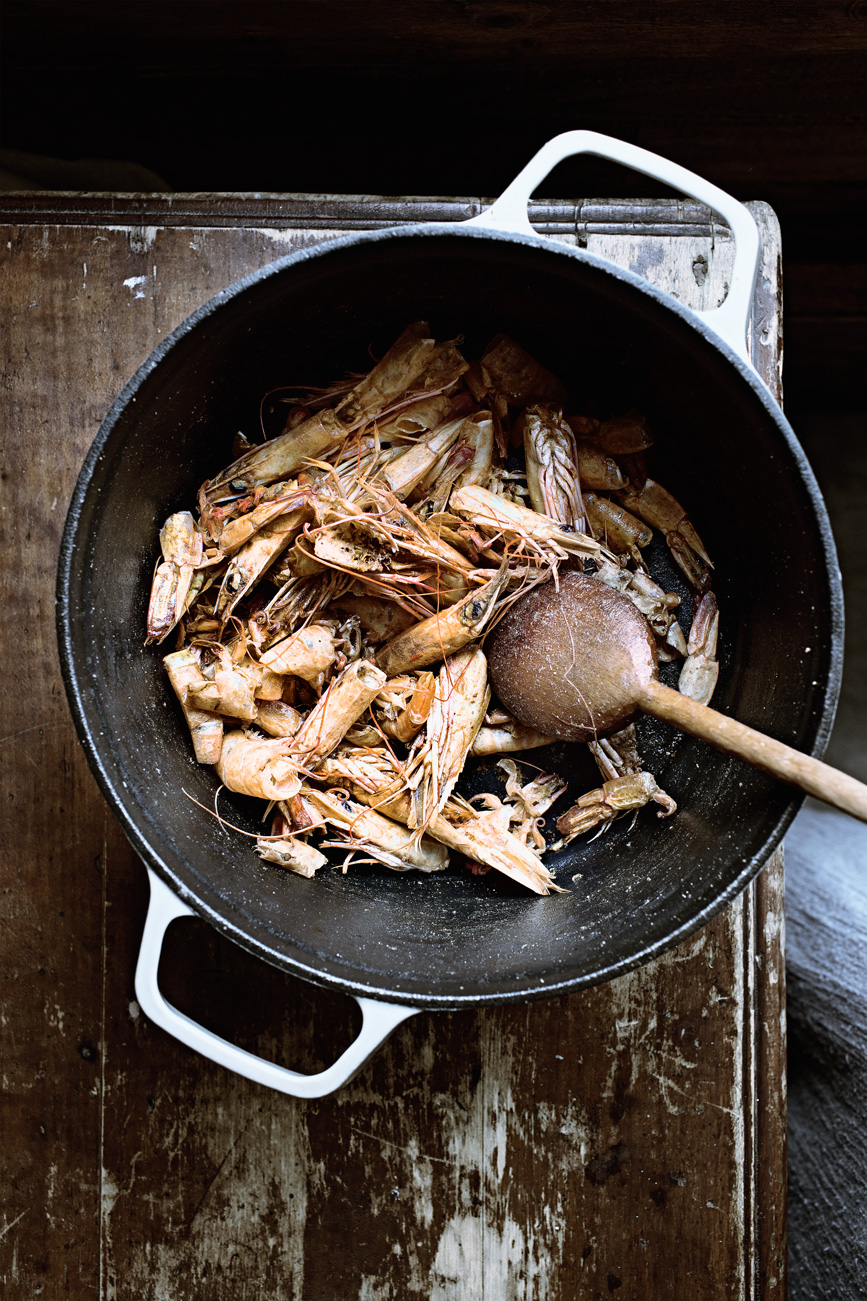
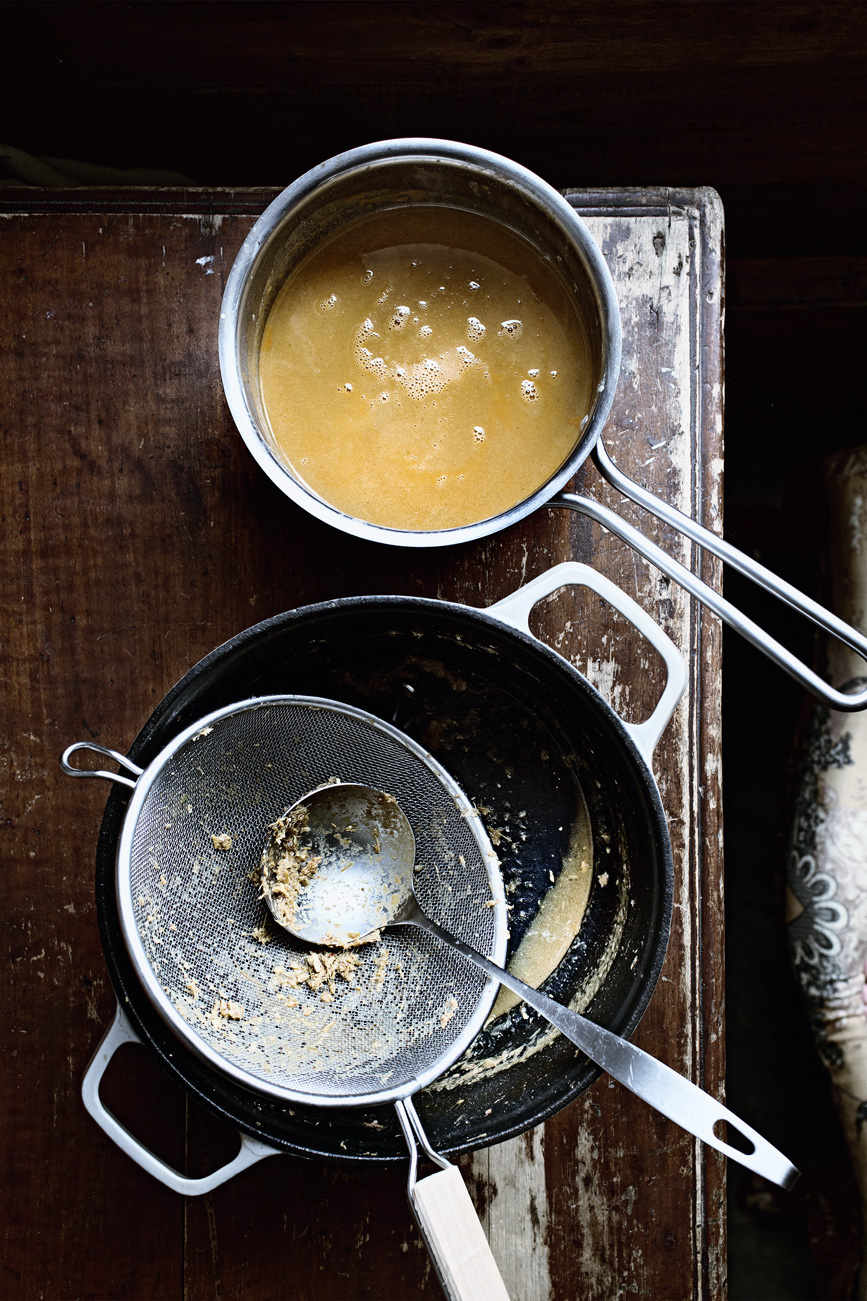
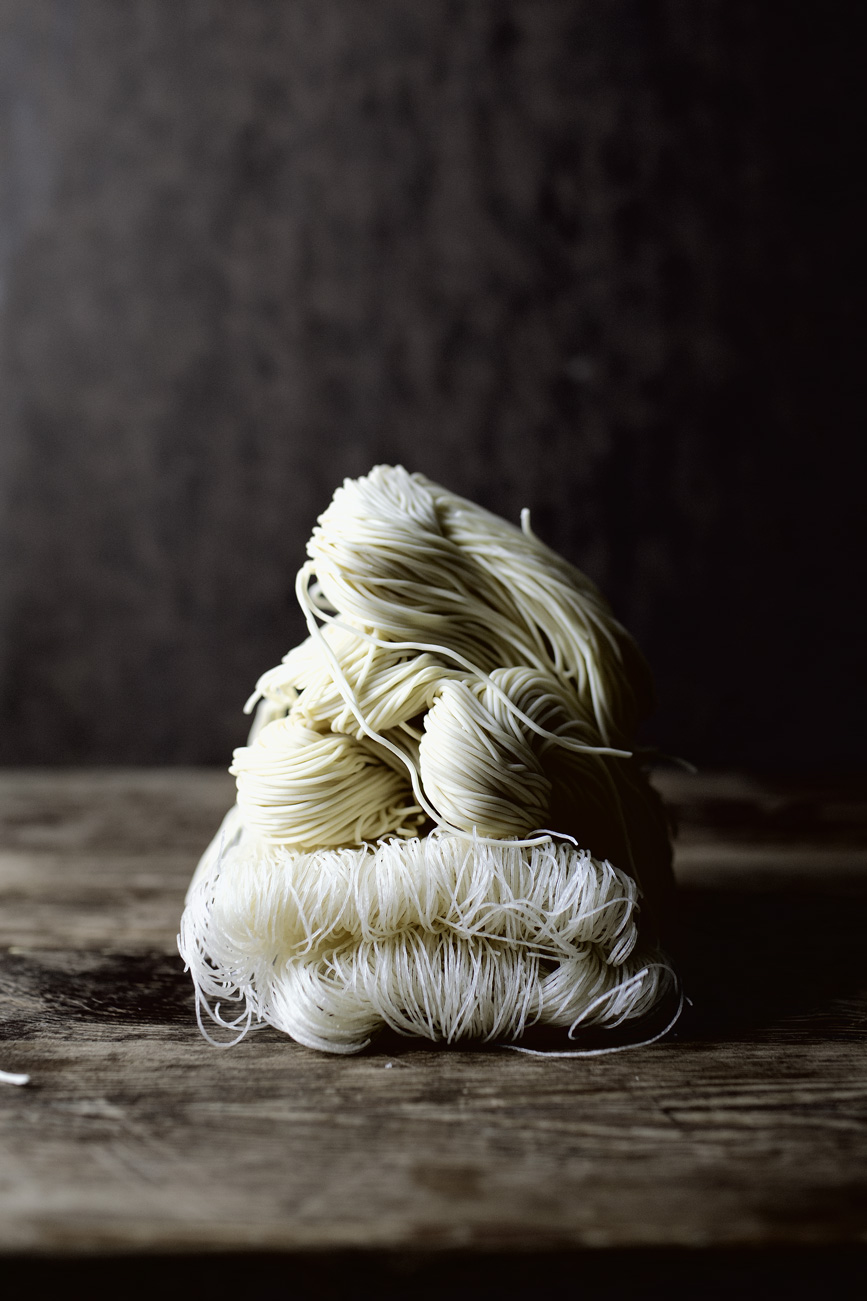
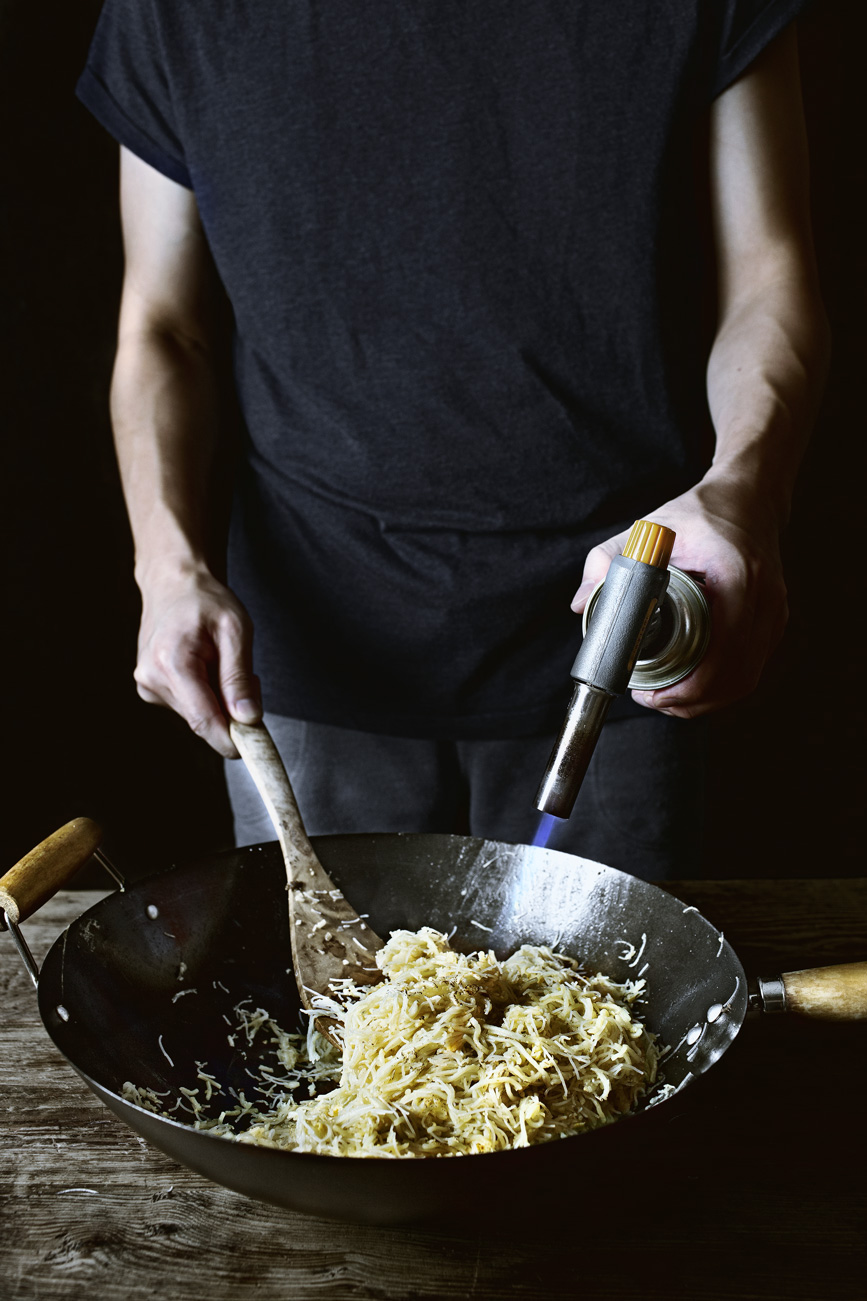
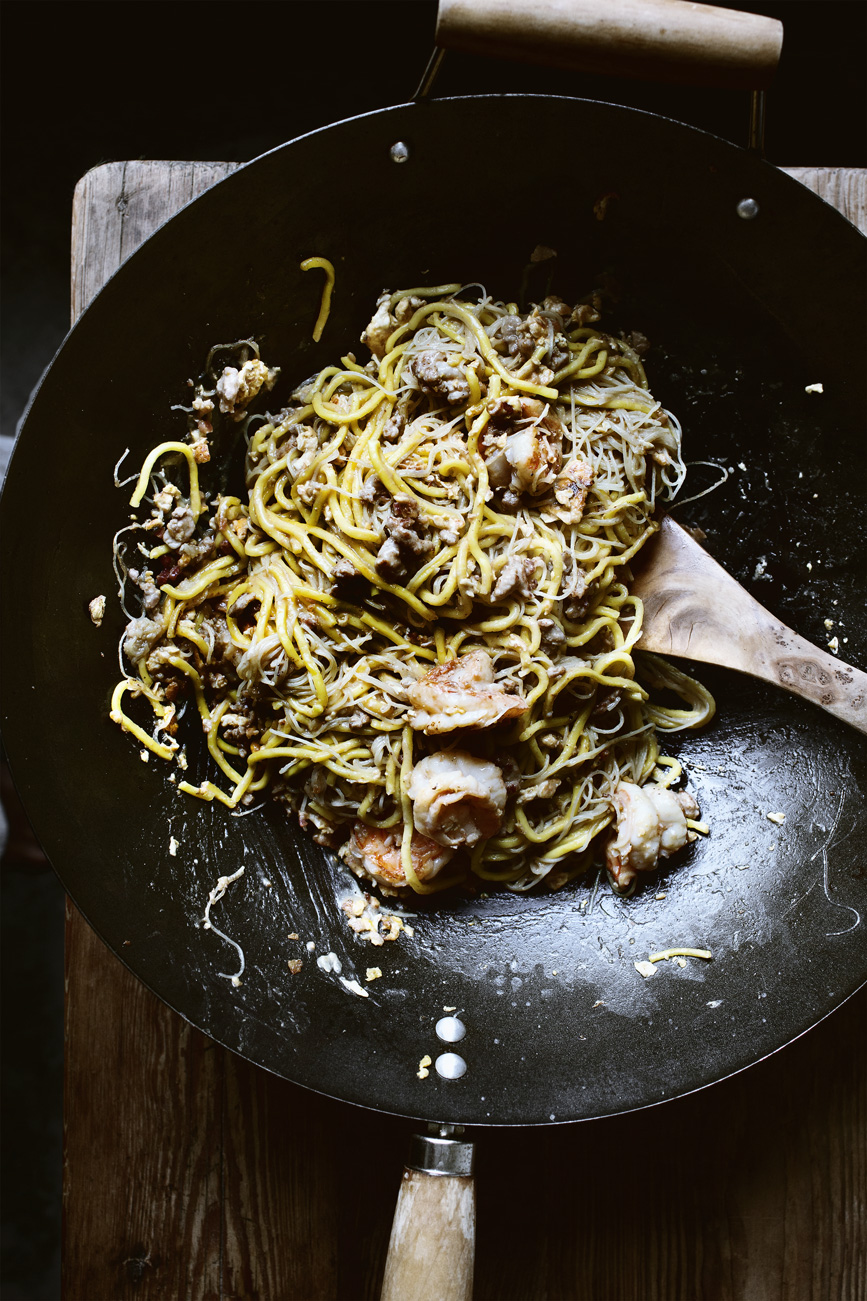
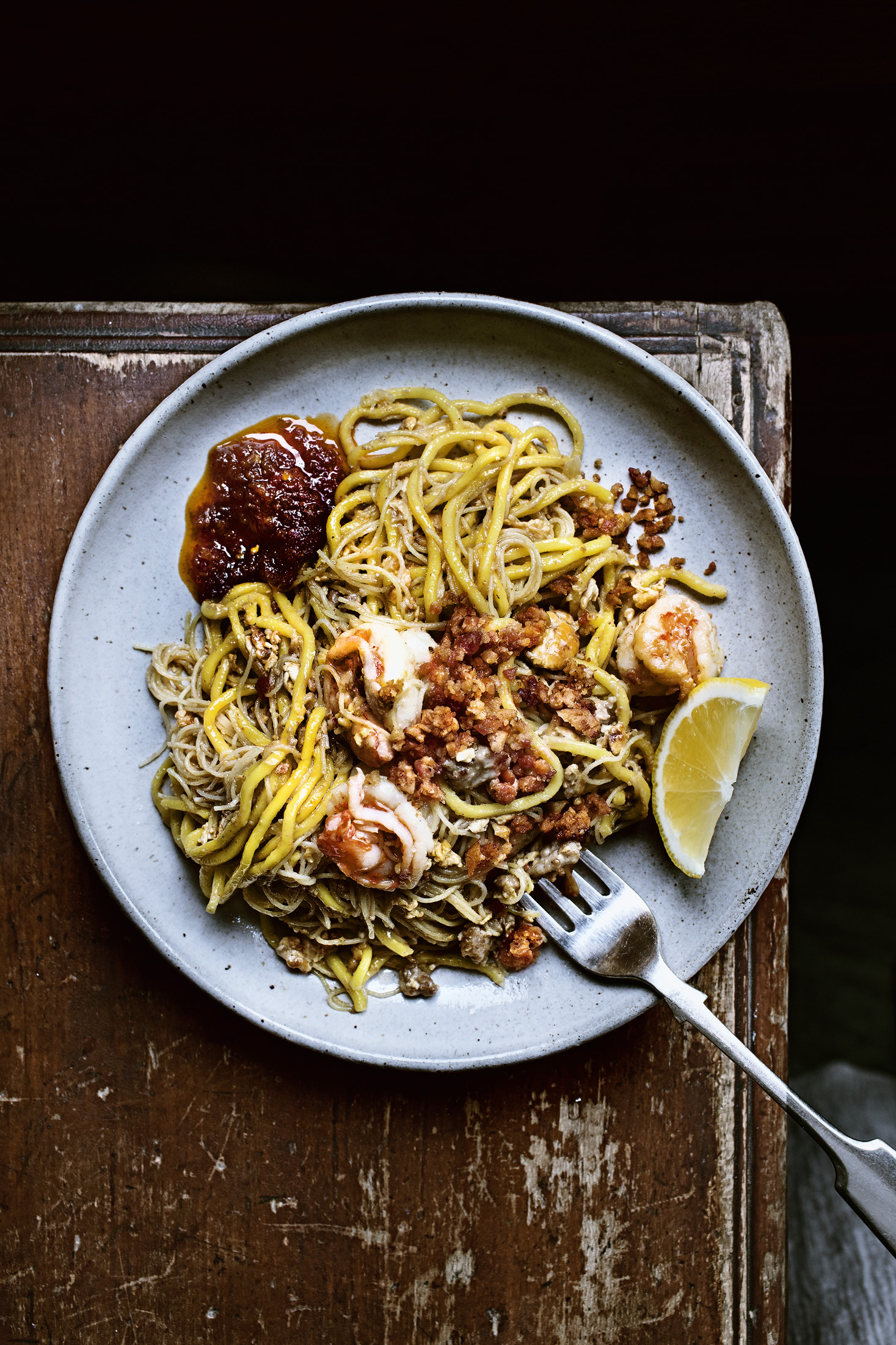
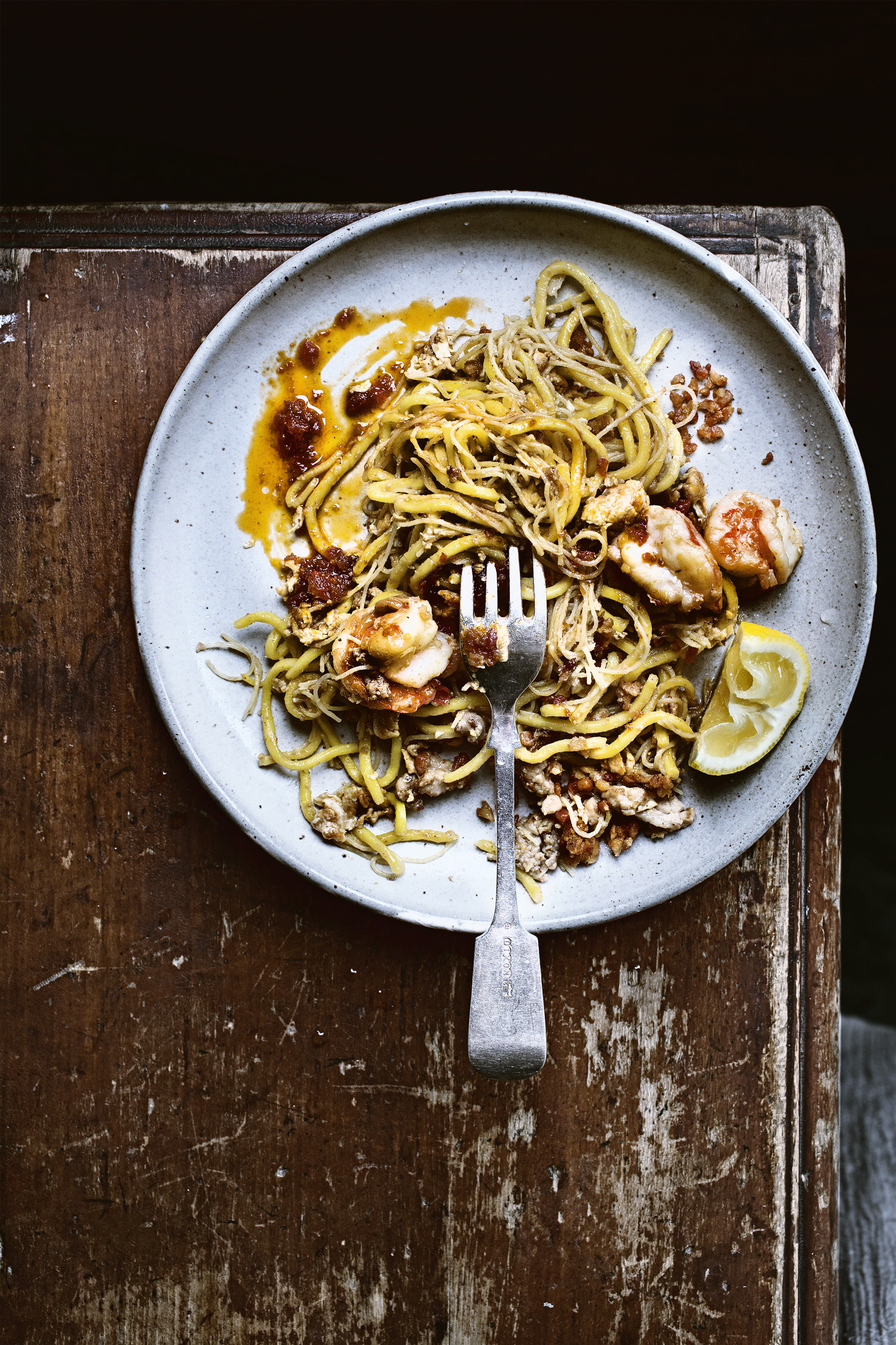
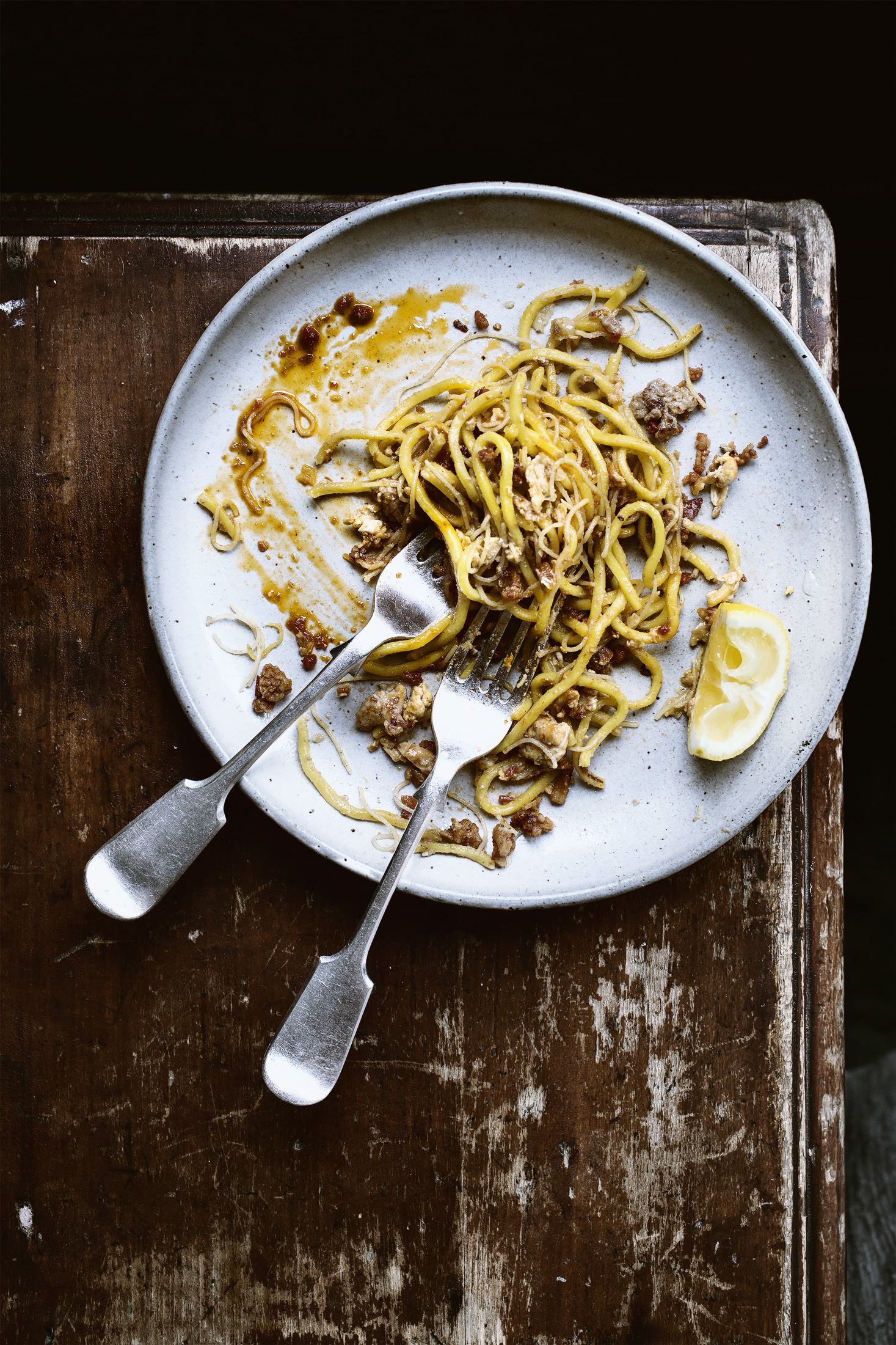
Ann R
05.09.2018at5:04 AMPrawn mee one of those culinary souvenirs you take back home after traveling through South East Asia! Thanks for your spirited interpretation, everyone needs homely Asian comfort food in their recipe files. Good on yah L&P!
Ariel
05.11.2018at2:14 AMLOL at your description of Hokkien Mee’s appearance! Being a Singaporean and having grown up eating Hokkien Mee, I have never given any thought to how it looks. Every plate looks so good to me because I already attach it’s appearance to how good I know it tastes, and the smell, oh the smell, definitely doesn’t hurt either. There are many places in Singapore serving iconic local dishes that don’t deserve the hype (and accompanying tourist patronage), but the famous Hokkien Mee stalls aren’t among them. Thank you Mandy for taking the time to do this series and recreate this dish. I’m in a rather unique position as I’m being made aware through this post of how blessed I am to be able to head to my favourite hawker centre for my fix, but I love that you made it possible for people to enjoy this dish wherever they are. I hope you come to Singapore again sometime, especially if it might inspire a part 2 to this series..? :)
mandy@ladyandpups
05.11.2018at11:50 AMAriel, I certainly look forward to going back! I do envy your access to all the hawker foods, as HK is very lacking in that department.
Zainab
05.25.2018at1:52 PMI wish this was easier to make. But I think it looks insane(ly amazing) and that you are a genius. Funny too. I think you could be my new girl crush. :)